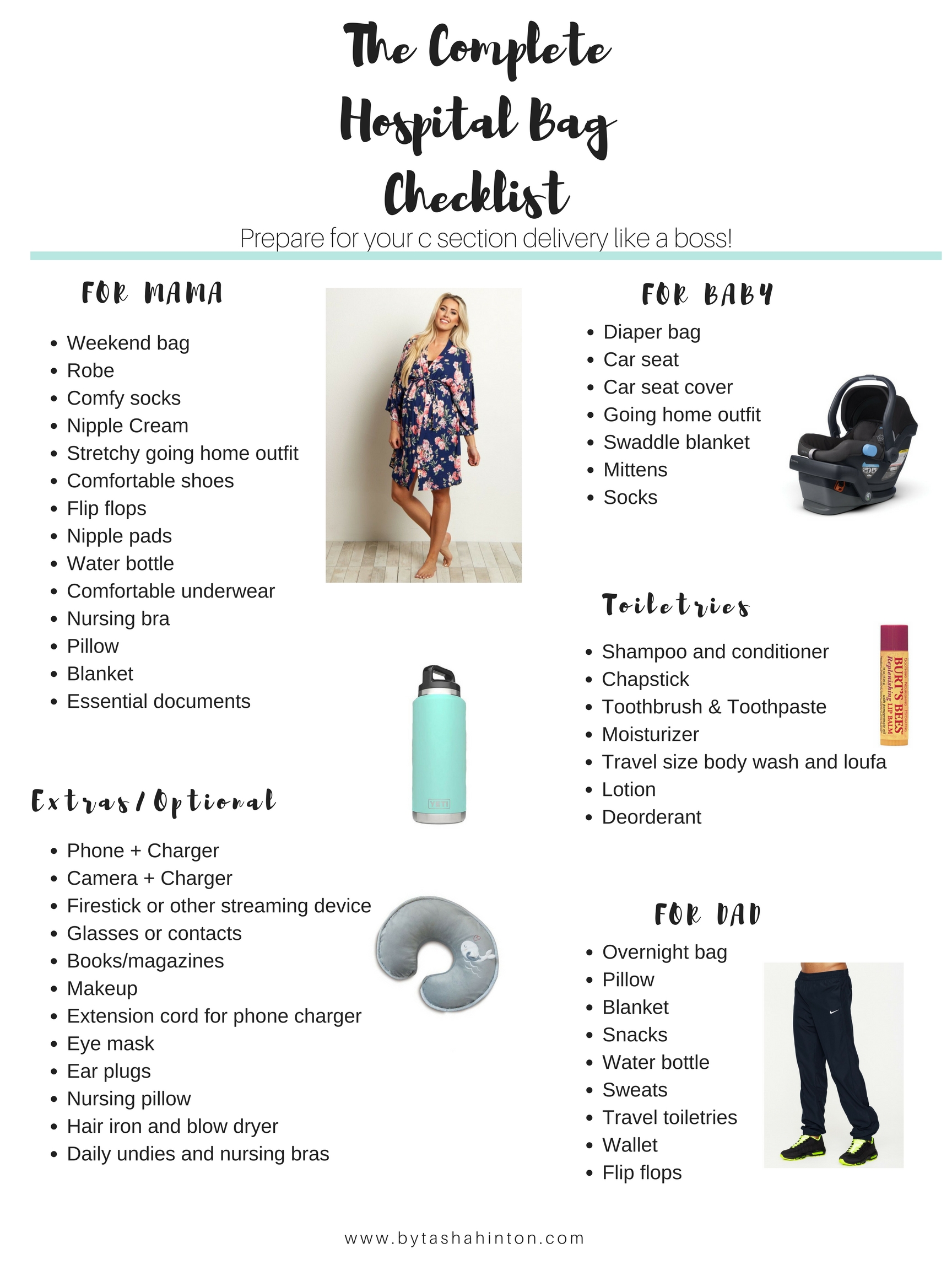
Your prescription medications (antibiotics, painkillers, stool softeners, etc.).Slippers and socks with gripper pads to avoid slipping.Comfortable, flat shoes that you can slip on without a hassle.Loose-fitting clothes that you can put on and take off easily (a button-up shirt or a zip-up hoodie is preferred).Your phone charger (and LONG charging cords can come in handy at the hospital).Your mobile phone (make sure it’s password-protected).Personal health records, including lists of allergies, health conditions, and immunization records.Any medical/ lab reports your surgeon may need to check.Your wallet with your ID, Medicare card, health insurance details, and a small amount of cash and loose change in case you want to buy something from the vending machine or coffee shop.The night before your plastic surgery, make sure you have the following essentials packed into your hospital bag:

We’ve prepared a checklist below that can help you guarantee you don’t forget anything important. Although some of those items seem trivial, many people forget to pack them. You’ll need to have a few necessary items in your hospital bag when you go to the hospital for plastic surgery. Your Plastic surgery hospital bag: Essentials you’ll need Packing everything you need for a hospital stay puts you on the right track to start your recovery and healing journey after plastic surgery.

Obviously, being prepared is one of the best ways to ensure the success of anything, including plastic surgery. Some hospitals are allowing moms and babies to leave earlier than they previously did, which means you might not need to bring as many clothes as you might have if you weren't giving birth during the pandemic.Suggested Items for Your Hospital Bag For Plastic Surgery When people wear gloves they’re less likely to continually wash their hands, which is much more important to protect against the coronavirus. It’s much better to practice good hand hygiene than it is to wear gloves. That said, your support person can still wipe down areas you may touch often, such as the table holding your food tray and drink. As a result, your hospital probably won't recommend bringing your own cleaning supplies. Hospitals use cleaning supplies that disinfect surfaces effectively but don't damage special equipment. Pack a hand sanitizer that contains at least 60 percent alcohol (often listed on the label as ethanol, ethyl alcohol, isopropanol or 2-propanol). It's a smart idea to pack extras in your bag. The Centers for Disease Control and Prevention (CDC) recommends that people who are considered high risk for severe COVID-19 - including pregnant women - wear a mask indoors when cases of the virus in the community are at medium or high levels. Medical centers have their own policies on indoor masking, but many require that people mask up - outside their rooms, at least. Ask your hospital about its technology policy so you can prepare accordingly. However, while you can FaceTime during labor, many hospitals have policies that don't allow you to take videos during delivery. Since some hospitals only allow moms-to-be to bring one support person into the room, your hospital may let you prop up a cell phone or tablet so you can communicate with family, friends or your doula during labor.

Hospitals may also place limits on how often your support person can come and go, and many discourage outside visitors.


 0 kommentar(er)
0 kommentar(er)
